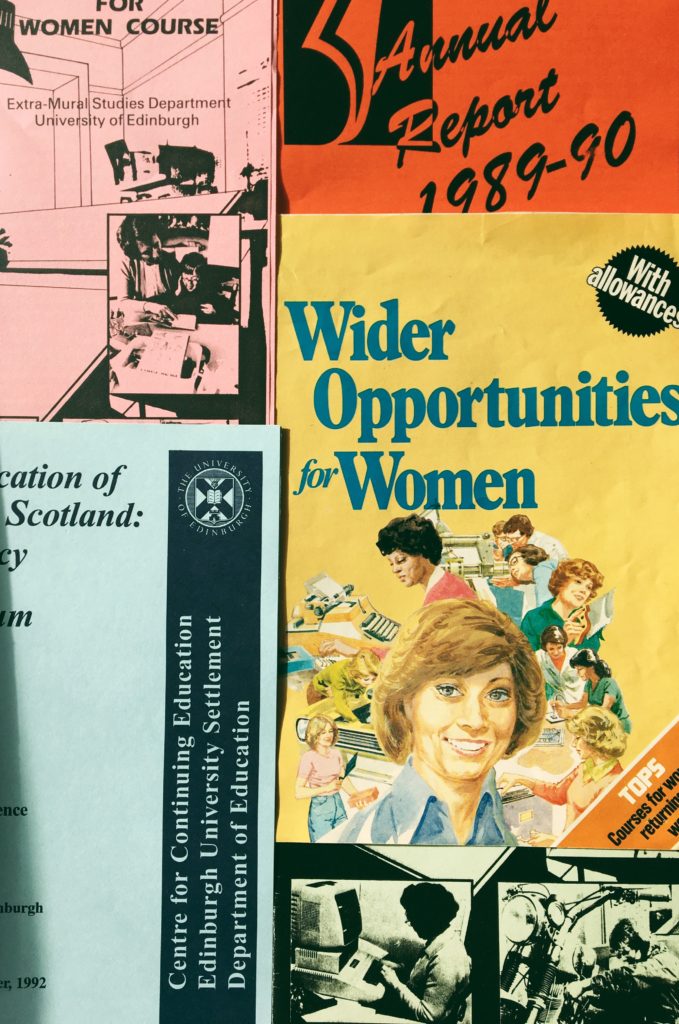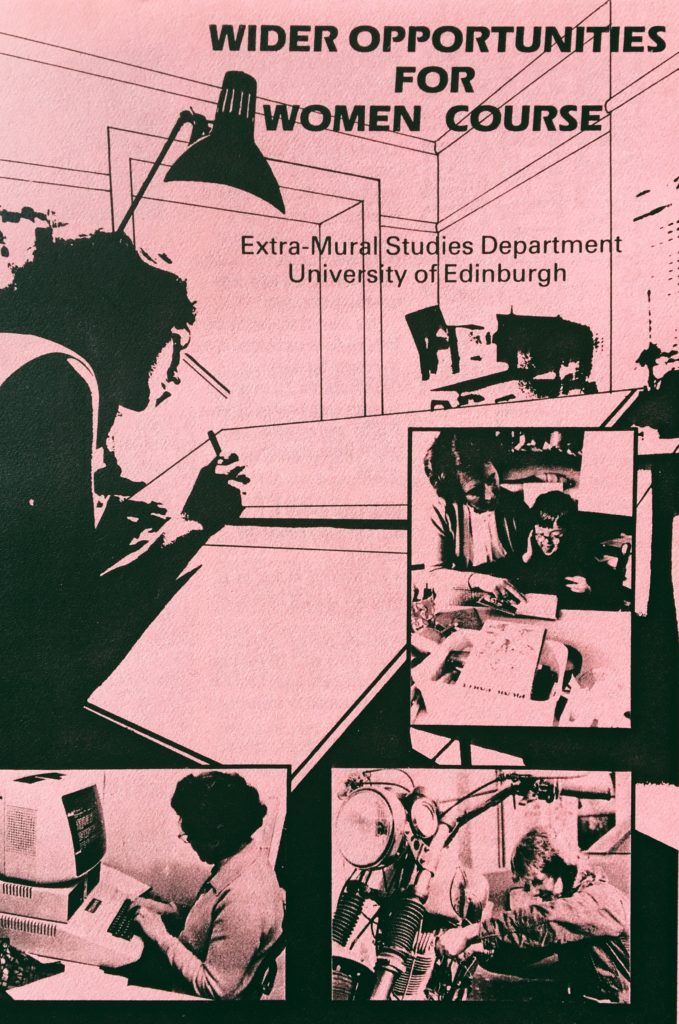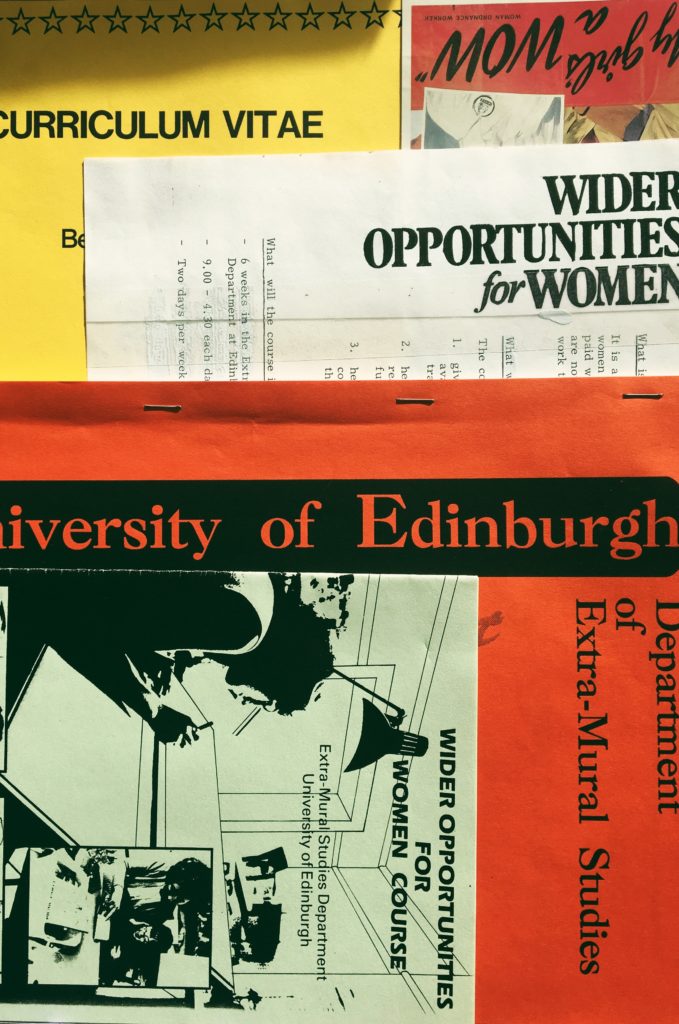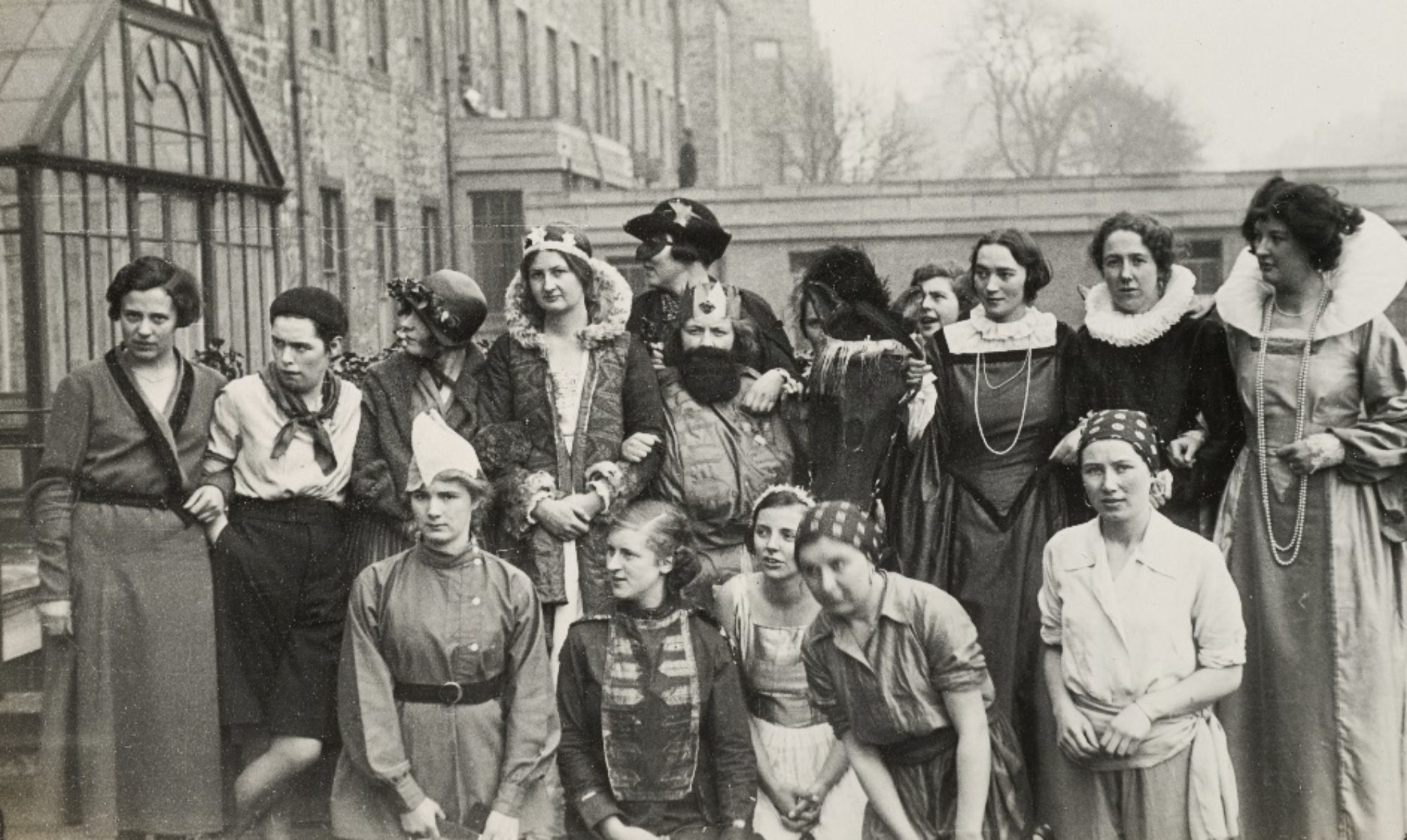
Buried within the pages of one of the latest acquisitions at the Centre for Research Collections–one so recent, in fact, that its contents have yet to be detailed within the CRC catalogue–, a cut-out of a 1980s’ magazine states:
‘The trouble for most women who have spent years at home is that they lack the self-confidence to start again. And those few who have retained their self-esteem are so out of touch that they don’t know how to get going.’
This statement should come as no surprise, as even today women, who statistically perform a greater share of domestic and child-rearing tasks, are more likely than men to see their career development negatively affected by their commitment and devotion to family responsibilities. At the time our magazine article was published, however, the UK government, in partnership with the Manpower Services Commission and the University of Edinburgh, begun to implement a unique solution to the issue: the WOW programme. WOW (Wider Opportunities for Women) courses started being offered within the Extra-Mural Department at the University of Edinburgh in 1980, making the university possibly the sole institution to receive Manpower Services Commission funding for such a programme. Initially run by the Training Services Division of the Manpower Services Commission, the WOW programme was aimed at women planning to return to work –most often after pregnancy and years of domestic ‘employment’–, and sought to provide training opportunities as well as guidance over how to approach the job market, what type of opportunities might be available, and what obstacles may be encountered.

As the leaflets and fliers stored within the collections suggest, the Edinburgh WOW programme was open to all women who had never had a job or who had not worked for at least two years. In addition, women of at least 19 years of age who had left full-time education a minimum of two years prior to the start of the programme were also encouraged to place an application, making the course a highly inclusive and diverse environment.
Most importantly, the course was mainly aimed at women who might feel insecure or unsure with regards to their career paths. In a short statement within the same magazine cut-out, then organiser of the Edinburgh WOW course –and WOW alumna—Joanna Highton stresses the importance of helping women understand their potential and talents:
‘When we interview women, we deliberately choose those who have not made up their minds about what they want to do. They are the ones who need it most.’
Those accepted on a WOW course were offered a tax-free weekly allowance dependent on their family circumstances, as well as travel reimbursement and lunch refreshments throughout the course. They were encouraged to take part in different work experience programmes and to consult experts in their chosen fields, and appointments were made for them to discuss their plans ‘with the expert staff of the Occupational Guidance Unit.’

‘The WOW course helps women focus on the job they want, and gives them a realistic idea of just how to get it.’
CV guidance and interview preparation were integral components of the WOW programme, so as to fullfil the three fundamental aims of the course:
- To give information;
- To help make plans;
- To help gain confidence.
In 1989, with the transformation of the Extra-Mural Department into the Centre for Continuing Education, the WOW programme at The University of Edinburgh underwent a re-branding that lead to the creation of the new Returning to Work or Study course, ‘a two-term one-morning-a-week’ course ‘open to parents of either sex who have been tied to domestic responsibilities for a number of years.’ The newly formulated programme had the goal of providing ‘participants with an opportunity to reassess their potential and reconsider their career goals.’ Although statistics relating to the number of male vs female students within the new course are currently not available, general social tendencies seem to suggest that enrollment to the Returning to Work or Study programme would have remained primarily, if not uniquely, female.
Revolutionary in its approach to solving a problem affecting countless women, the WOW course remains inspirational today as an initiative promoting inclusion in the workplace, supporting families, and encouraging women to pursue satisfying and meaningful careers.
